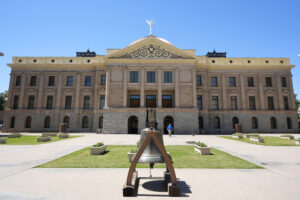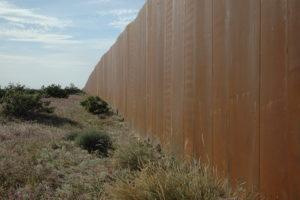Reciting This Bilingual Poem in Schools Apparently Violates Arizona’s Absurd Ethnic Studies Law
"Tú eres mi otro yo/ You are my other me," begins a section of a poem often taught in Arizona classrooms. Ancient Mayan hieroglyphs. Shutterstock
Ancient Mayan hieroglyphs. Shutterstock
“Tú eres mi otro yo/ You are my other me,” begins a section of a poem that is based on Mayan principles and is often taught in Arizona classrooms. The verses, which encourage empathy and mutual respect, seem harmless enough. Some may even call them inspiring. However, it appears that repeating those lines at schools in the Copper State is a way of “illegally promoting ethnic solidarity and the overthrow of the U.S. government.”
At least that’s what former state Superintendent of Public Instruction John Huppenthal would have you believe.
Huffington Post:
The outgoing head of Arizona’s education department caught national attention earlier this month when, on his last day in office, he issued a letter saying that Tucson’s public schools are illegally promoting ethnic solidarity and the overthrow of the U.S. government by teaching Mexican history and hip hop.
What received less attention is the letter’s citation of a poem penned by Chicano playwright Luis Valdes that aims to instill ideas of empathy and integrity. Teachers of a Mexican-American studies curriculum outlawed by the Arizona legislature used to open their courses with a recitation of the multilingual poem, which Valdes based on philosophical concepts from the ancient Maya.
Here’s the poem:
In Lak’ech
Tú eres mi otro yo.
You are my other me.
Si te hago daño a ti,
If I do harm to you,
Me hago daño a mi mismo.
I do harm to myself.
Si te amo y respeto,
If I love and respect you,
Me amo y respeto yo.
I love and respect myself.
…Arizona’s former Superintendent of Public Instruction John Huppenthal cited as a violation of the state’s ethnic studies law the requirement that students recite the poem at the beginning of class and understand the concepts behind it.
Read More.
To watch a recording of “In Lak ‘ech” being recited, click here.
—Posted by Natasha Hakimi Zapata
Independent journalism is under threat and overshadowed by heavily funded mainstream media.
You can help level the playing field. Become a member.
Your tax-deductible contribution keeps us digging beneath the headlines to give you thought-provoking, investigative reporting and analysis that unearths what's really happening- without compromise.
Give today to support our courageous, independent journalists.






You need to be a supporter to comment.
There are currently no responses to this article.
Be the first to respond.